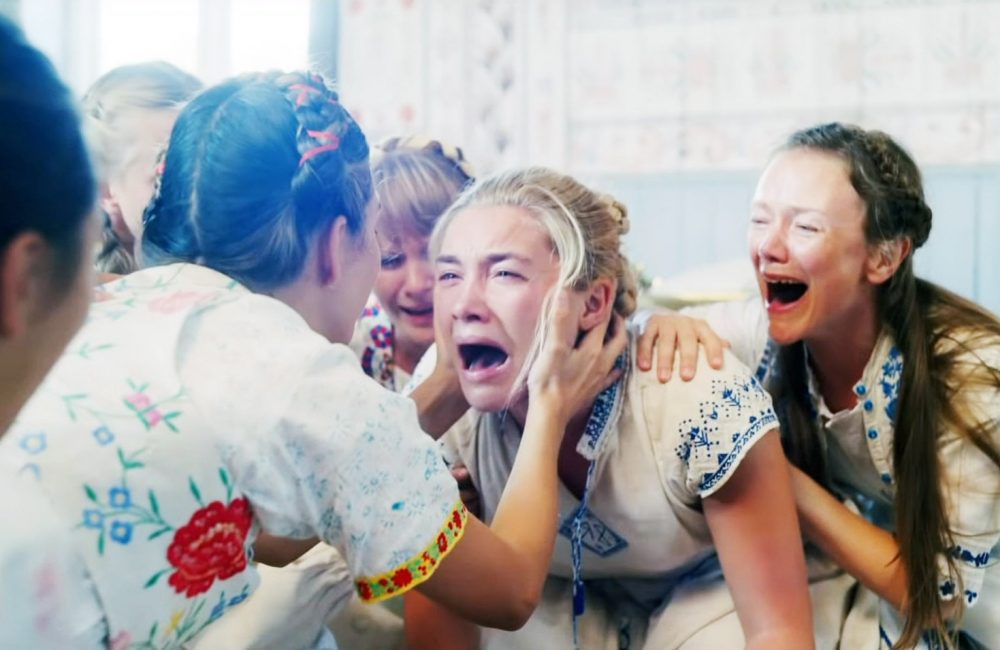To kick off a new series of film reviews where Roudi reviews films in under 451 words, we bring you her thoughts on MIDSOMMAR
Midsommar’s opening images include a series of murals, similar to Albertus Pictor’s paintings in The Seventh Seal, showing a ritual with the same characters in different parts of their journey. Then the movie begins on a heavy note, visually and thematically dark and claustrophobic, carried by a complicated setup to tell the audience everything they need to know about a couple on the verge of a break up, Dani (Florence Pugh) and Christian (Jack Reynor), and the people who share their lives. Dani’s family tragedy forces the couple to stay with each other and we remain in closed interiors in Dani’s apartment with very little light with the characters.In the middle of such forced gloom one object catches the eyes; John Bauer’s painting called ‘Poor Little Bear’ from Helena Nyblom’s book ‘The Walk of Innocence’. In the painting a little fairy-like girl wearing a crown is kissing the nose of a huge bear, while the bear looks at her with innocent eyes. This modern take on an old fairytale looks nothing like the medieval-style murals we saw in the opening and don’t become the dark world of Dani, but the hint of a fairytale turns real, only with an ominous ending.
The transition to daylight and sunny exteriors happens in the most subtle way in Midsommar, as the couple and their friends get to a new destination in a commune in Sweden. The friendly and welcoming community and their celebration of summer solstice will not end the tenebrosity of Dani’s mental and emotional state as she finally sees the manifestation of her already dead relationship with Christian.
Unlike in Bergman’s black and white film, Midsommar’s murals are in bright colors and there are many of them throughout the movie to foreshadow upcoming events. The viewer becomes as engaged as the main characters in the blossoming psychedelic journey, and the festivities of the midsummer celebration distracts us from the reveal that’s been given to us already in those medieval-looking paintings. As Dani watches the nature pulsate in an intoxicating way and becomes one with it, Midsommar captivates us for a horrifying ride among a group of people who only celebrate themselves and those who either look like them or who become like them and conform to their traditions. And with his second feature, Ari Aster makes a bold statement about today’s problems of xenophobia and exclusivity that resonates with anyone through the familiar story of a break up. The film is a unique and memorable take on the horror genre, and this reviewer will, without a doubt, be heading back for a second viewing.








